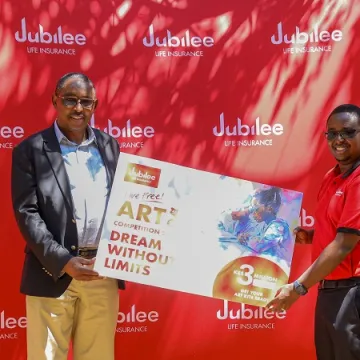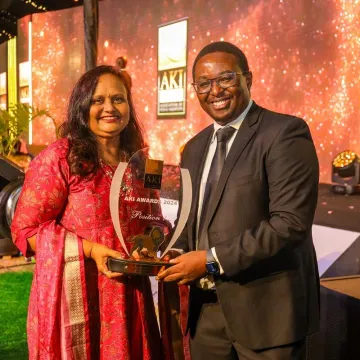The Wisdom of Generations: Shaping the Future of Work Through Collective Strength

Anna Manyara, Chief Operations officer, Jubilee Life
For the first time in history, five generations are working side by side. This unprecedented convergence spanning from seasoned traditionalists to tech-savvy Gen Zs presents both a challenge and an opportunity for today’s organizations.
The workplace is no longer a simple transaction of work for pay, but a dynamic space where diverse perspectives, values, and expectations must coexist and thrive.
The World Economic Forum's 2025 discussions reinforced how digital transformation, automation, and evolving work models continue to reshape our understanding of work. These forces are not only changing how tasks are performed but are also challenging organizations to rethink how they create value for their people. The question now is: how can organizations respond effectively while engaging every generation?
Rethinking EVP for a Multigenerational Workforce
At the core of this shift is the Employee Value Proposition (EVP), which shapes how organizations attract, retain, and engage talent. A one-size-fits all EVP no longer works. To succeed with a multigenerational workforce, companies must broaden their EVP to reflect the distinct priorities of each generation.
Baby Boomers seek stability, job security, and long-term benefits. Millennials and Gen Z prioritize purpose, flexibility, career growth and work-life balance. Today’s challenge is to create an EVP that resonates with the values of all generations.
The KPMG 2024 East Africa CEO Outlook Report reveals a gap: 56% of African CEOs see talent as a top risk, yet EVP ranks only seventh in priorities. This shows organizations recognize retention challenges but have yet to fully address them through EVP.
Harnessing the Power of Hybrid and Remote Work
The rise of hybrid and remote work has introduced new opportunities for flexibility, but it has also exposed generational differences in how work is perceived. Younger generations are driving the demand for digital collaboration, remote work, and flexibility, valuing autonomy, results and control over their time. Conversely, older generations often value the structure and predictability of traditional office-based work.
Leaders need to balance flexibility with structure by focusing on meaningful work and results rather than just physical presence. This approach supports both those who prefer remote autonomy and those who thrive with office routines.
The Role of Mentorship and Reciprocal Learning
One of the greatest advantages of a multigenerational workforce is the opportunity for reciprocal learning. Senior employees provide experience, institutional knowledge, and strategic insight, while younger generations bring technology skills and fresh approaches.
Organizations must therefore foster mentorship as a two-way exchange, where both sides learn from each other. This mutual learning builds respect, innovation and collaboration.
Lifelong Learning: A Necessity for All
For now and beyond, continuous learning is becoming a necessity. Organizations must invest in lifelong learning, ensuring that all employees, regardless of age or experience, are equipped with the skills needed to navigate an ever-changing landscape. Senior employees must be empowered to develop digital skills, while younger employees should be given the tools and support to grow into leadership roles.
At Jubilee Life Insurance, we invest in both technical and leadership growth to prepare our people for today’s challenges and tomorrow’s opportunities, strengthening individual development and organizational resilience.
The Importance of Listening and Adapting
In the midst of this generational convergence, one constant remains: the need for leaders to listen. The most successful organizations will be those that continually engage with their employees to understand their needs and concerns. Regular feedback—through surveys, pulse checks, and open dialogue—allows organizations to stay attuned to the needs of their workforce.
By acting on this feedback, leaders can tailor policies and initiatives to reflect the changing dynamics of the workforce. The workplace of the future will be defined by the collective wisdom and strength of all five generations.
As we move forward, leaders must rise to the challenge by embracing the diversity of thought, experience, and skill that each generation brings. The task is not easy, but the reward is clear: a workplace that is not only productive but also inclusive, dynamic, and forward-thinking.
The Writer, Anna Manyara, is the Chief Operations officer, Jubilee Life





